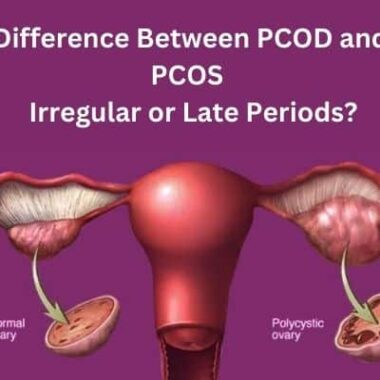Periods or Menstruation is important for a female as it signals that her reproductive system is working properly and that she is capable of pregnancy. It is a monthly cycle during which the uterus sheds its lining and prepares for a possible pregnancy. A lack of menstruation can indicate a health problem that should be addressed. Additionally, regular menstrual cycles can also help women track their overall health and fertility.
What happens to the female body during a period?
During a Menstrual cycle, the following changes occur in a female’s body:
- Hormonal changes: The levels of hormones like estrogen and progesterone fluctuate, causing changes in the lining of the uterus.
- Shedding of the uterine lining: If pregnancy does not occur, the thickened lining of the uterus is shed through the vagina as menstrual bleeding.
- Cramps: Many women experience cramps or pain in the lower abdomen as the uterus contracts to shed its lining.
- Mood changes: Hormonal changes can also affect a woman’s mood and cause symptoms like irritability, fatigue, and bloating.
- Physical symptoms: Some women may also experience headaches, acne, bloating, and fatigue during their period.
These changes happen every month and can vary in intensity and duration for each individual. It is important to pay attention to your menstrual cycle and any changes in symptoms to ensure overall reproductive and sexual health.
5 importance of the Menstrual Cycle among females
The Menstrual Cycle is important for females for the following reasons:
- Fertility: The menstrual cycle signals that a woman’s reproductive system is working properly and that she is capable of pregnancy.
- Health indicator: Regular menstrual cycles can help women track their overall health and identify any potential issues.
- Hormonal balance: The menstrual cycle regulates the levels of hormones in a woman’s body, helping to maintain overall health and well-being.
- Pain management: Menstrual products like pads, tampons, and menstrual cups can provide comfort and manage pain during periods.
- Reproductive health awareness: Understanding the menstrual cycle can increase a woman’s knowledge of her reproductive health, helping her to make informed decisions about contraception and sexual health.
How many days are normal in the Period or Menstruation?
A normal menstrual cycle can last anywhere from 2 to 7 days, with the average being around 3 to 5 days. The length of a woman’s period can vary from cycle to cycle and can change over time. It is considered normal for periods to last longer or shorter than average, as long as the cycle is consistent for the individual woman.
It is important to keep in mind that every woman’s menstrual cycle is unique and can be influenced by various factors such as age, hormonal imbalances, stress, and certain medications. If you are concerned about the length or frequency of your menstrual cycle, it is recommended to speak with a healthcare provider.
What happens if a woman doesn’t have her period?
A lack of Periods or Menstruation, also known as Amenorrhea, can have a variety of causes. Some common causes include:
- Pregnancy: If a woman is pregnant, she will not have a menstrual period.
- Menopause: As a woman approaches menopause, her periods may become less frequent and eventually stop altogether.
- Hormonal imbalances: Disorders such as thyroid problems, polycystic ovary syndrome (PCOS), and eating disorders can disrupt the menstrual cycle and cause amenorrhea.
- Certain medications: Certain medications, such as birth control pills, can also affect the menstrual cycle and cause periods to stop.
- Stress: Severe physical or emotional stress can cause a temporary interruption in the menstrual cycle.
Suppose a woman is concerned about the absence of her period. In that case, speaking with a healthcare provider to determine the underlying cause and receive appropriate care and treatment is important. Sometimes, a lack of menstruation can indicate a severe health issue, such as infertility or a hormonal disorder, and prompt medical attention is essential.
iVate Ayurveda Lady Care Capsules
iVate Ayurveda Lady Care Capsules can be used to support the Female body. The capsules combine vitamins and minerals that support the female body. Capsules can be used to regulate the Menstrual Cycle and reduce stress. The capsules may also help reduce symptoms such as PMS and me.
FAQ’s of Periods or Menstruation
Yes, it’s common to experience cramps, bloating, and mood swings. However, severe pain or excessive bleeding may signal a medical issue and should be discussed with a doctor or nurse.
Absolutely. Exercise can help alleviate menstrual symptoms. It’s essential to listen to your body and engage in comfortable activities.
Occasional irregularities are typical, but consistent irregularities may indicate an underlying issue. Consult a healthcare provider if you have worries about your menstrual cycle.
While it’s less likely, it is possible. Sperm can survive in the body for several days, so it’s important to use contraception if you don’t want to get pregnant.
Heat therapy, over-the-counter pain relievers, and relaxation techniques can help manage discomfort. If symptoms are severe, consult a healthcare provider.
Significant changes in flow or color should be discussed with a healthcare provider, as they could indicate a medical issue.
Conclusion
Understanding the importance of periods goes beyond biology. It encompasses a woman’s physical, emotional, and psychological well-being. Embracing menstruation as a natural and vital part of life empowers women to take charge of their health and live confidently.









